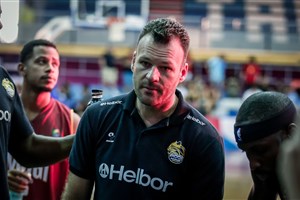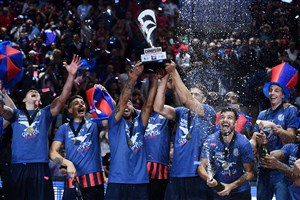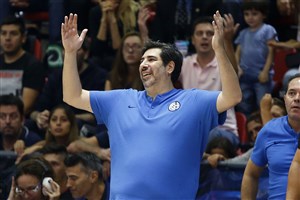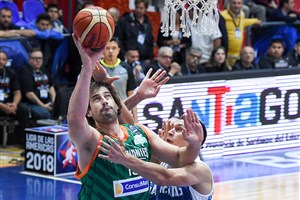
Paulistano, a homemade team
TALCA (DIRECTV Liga de las Américas) - Paulistano is a centenarian club from the city of São Paulo and, since its establishment in 1900, it’s always included basketball among its sports, although it never practiced it on a professional level. Despite this, it has the distinct honor of having featured among its ranks —albeit for a brief time— the mythical Amaury Pasos.
Club Paulistano is in the elegant neighborhood of Jardín América in the city of São Paulo, and most club members are part this Brazilian city's elite class. The club has a considerable amount of movement and many activities that span a variety of sports.
During several decades, it wandered in the second division until it went up to the highest one in the São Paulo State Tournament in 2003. In their first season, they ended among the first six places in the regional tournament, which allowed them to participate in the Brazil National League.
In all those years, they always built their squads with a majority of young players that grew in the club. The result was that Paulistano could has bragging rights to have developed players that are well-known internationally; such as Jefferson (Franca) and JP Batista (Flamengo). But Paulistano's greatest symbol is Marcelo Huertas, a former NBA player who's currently in Spain's Baskonia.
In 2009, the team decided to make an economic effort to build a stronger side and enlisted some notable figures; among them, another former NBA player, center Rafael “Baby” Araújo. Unfortunately, results were bad.
“That bad campaign —after investing a lot of money— caused trauma among the directives, and they were finally convinced that Paulistano's policy should be to play professionally with mostly in-house players. However, this also creates a negative effect because some players, after a good season, leave for teams that pay them more. That's why we’re always rebuilding the team,” says Gustavo De Conti, a young coach that currently heads the team and has done so since 2010, when he was only 30 years of age.

Since the club has no sponsors but does partake in many sporting activities —some of which are cause for protest if too much money is invested in professional sports— it adopted the policy of prioritizing on developing their own players.
Now Paulistano has its own recreational basketball school for club members, with an enrollment of 20 children from ages 7 to 11. Another school is projected for more than 200 children, thanks to the support of Fundación Bradesco.
At the same time, 150 players more, between the ages of 12 and 22, who are all part of the club’s minor categories —which officially do compete— train in the facilities that Paulistano rent to Club Continental São Paulo due to a lack of their own space.
In 2017, Paulistano —who won de São Paulo State Tournament in the adult category— were champions in the U-13, U-17 and U-19 categories. They’re currently undefeated in the U-22 they are and have qualified for the Final.
“Paulistano's secret to success for lesser categories has two reasons. First, because we have a good infrastructure to welcome players and, secondly, the young players know that they have the possibility of developing and becoming professional players in the future. They know that in the minor categories there's no pressure for results. There are professional players that sign with us for a lesser amount of money because they prefer Paulistano's environment,” De Conti explains.
Although they have a small stadium for less than 1,200 spectators, in each Liga Nacional game that Paulistano plays, more than 900 people attend —those who feel convened to see some of the players whose development they witnessed in the club.








